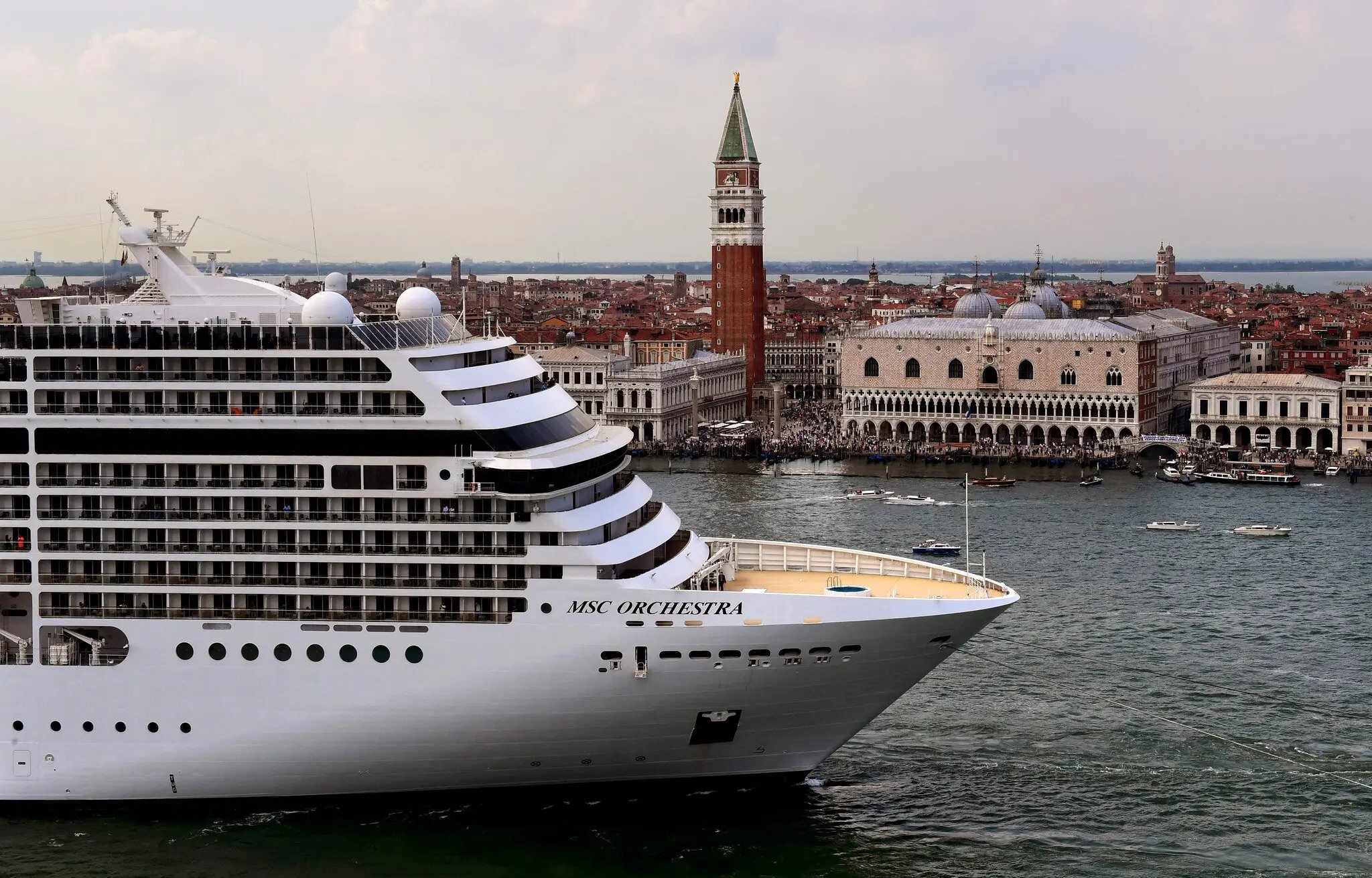
Getty Images
In the last month alone, we've heard about Kyoto banning tourists from Gion, Amsterdam banning new hotels, and Milan even banning pizza and ice creams. While part of it is fake news, the need to curb mass, over-tourism is real. It goes without saying, that tourism brings huge amounts of revenue to a local community, but it also brings with it its own set of problems. While in Japan we see it clashing with their decades-old culture, in Amsterdam it’s pricing locals out of the city, and in Venice causing the city itself to sink under the weight of cruise ships.
But besides heavy-handed bans, which benefit nobody really, what are the solutions? Simple out-of-the-box thinking can lead policymakers to prevent over-tourism while benefiting local communities. Here are some alternatives policymakers must consider before resorting to a total shutdown:
1. Develop Smaller Destinations

Part of creating a viable tourism economy is ensuring the benefits get spread across regions. Creating tourist infrastructure such as attractions, luxury hotels and transit hubs is the first step to doing this. If even 10% of the tourists who visit Amsterdam felt compelled to visit Den Haag or Rotterdam instead, it would solve a lot of problems for Amsterdam. This approach not only eases the burden on heavily visited areas but also opens up new opportunities for local economies and cultural experiences.
2. Encourage Lower Volume Higher Value Travel
Venice’s day-tripper tax is the perfect example that encourages high-value travel and is expected to keep non-overnight visitors at bay. Massive cruise ships disgorge thousands of tourists daily, straining the city's fragile infrastructure while contributing little to the local economy. This unsustainable form of mass tourism exacerbates Venice's literal sinking. A focus on lower volume, higher value travel is a sustainable way to preserve cultural and environmental treasures like Venice.
3. Draw The Right Kind of Tourist

This approach goes beyond regulations and taxes; it encompasses education, cultural awareness, and community engagement. By promoting understanding and respect for local customs, traditions, and environment, destinations can foster meaningful interactions between tourists and locals. Japan has time and again faced challenges with tourists not understanding and adhering to their cultural norms and showing disregard for local customs. Efforts to educate tourists about Japanese etiquette and traditions can lead to more respectful and mutually beneficial interactions.
Step into the world of The White Lotus Season 3 at Four Seasons Koh Samui. From luxurious hillside villas to curated experiences inspired by the show, indulge in tropical serenity, exquisite dining and unforgettable adventures. Paradise, perfected.
Luxury travellers are now seeking silent travel, a pursuit of something profound. It’s about casting aside the need for validation, trading Instagrammable moments for personal revelation. Across the globe, exclusive retreats are curating experiences where travel is a chance to inhabit each moment fully and awaken to the symphony of the unseen.
Frontier travel is redefining travel for those with a taste for the extraordinary. The unexplored edges of the world are calling, blending adrenaline with authenticity in ways that traditional luxury never could.
As an avid traveller, you might find yourself influenced by hotel rankings and best destination awards. But have you ever considered how these lists truly shape your travel choices? Our Founder, Keshav Arya, offers a refreshing perspective on these rankings, helping you see beyond the numbers to understand what truly makes a hotel or destination the 'best.'
Hidden India is a world-class, boutique, uber-luxe conservation travel and hospitality collection focusing on unique destinations, wildlife, culture, and wellness. The Raison d’être can offer personalized experiences à la carte, for the new age purposeful ‘Luxurian’.
The wealthy are often driven by a desire for exclusivity, seeking experiences and possessions unattainable to most by literally following the herd. This directionless competitive pursuit of status and superiority is distorting the genuine concept of luxury travel.
Have you felt disheartened after returning from a “Luxurious” vacation? Chances are you’ve been Luxewashed. Know everything about how hotels & influencers Luxewash, and how can you identify it to save you a big deal on time, effort and of course, money.
In this exclusive interview with the owners of Forestis Hotel—Stefan Hinteregger & Teresa Unterthiner, we delve into the inspirations and philosophy that brought this mountain retreat to life and the vision for travellers to sustainably relax and rejuvenate in the heart of nature.
Our Founder, Keshav Arya shares why we, himself included, religiously give into the wearing act of sightseeing, what makes it compulsive and how we can still pursue it healthily just by including some clever, more immersive experiences in our itineraries.
Planning a trip to Japan and want to venture beyond Tokyo and Kyoto? Azumi Setoda, harboured in the Seto Inland, should be your destination for an authentic Japanese hospitality experience. We interviewed its visionary founder, Adrian Zecha, to bring you exclusive insights about this remarkable new retreat.
We interview General Managers, Managing Directors, and Vice Presidents of Six Iconic Hotels to understand their perspective on defining and providing exceptional service—Here’s what they have to say!
Tourism brings huge amounts of revenue to a local community, but it also brings with it its own set of problems but the solution does not lie in a complete ban. Our Founder, Keshav Arya shares alternative strategies to look at before resorting to a complete ban.
In a delightful interview with tourism pioneer, Malik J. Fernando, Managing Director, Resplendent Ceylon, we get exclusives from his journey in Tourism and his enlightening views on the present and future of tourism in Sri Lanka.
To learn more about this distinctive method, we interacted with Dr. Mubaris Ahamed.T, TAIM Specialist at Zulal Wellness Resort to understand how TAIM is different from Ayurveda, its key elements and treatments and most importantly its long-term benefits.
Through an exclusive conversation with Irem Aldemir, Director of Spa at Peninsula Istanbul get enlightened with how this age-old bathing ritual has been redefined as a luxurious method of relaxation and rejuvenation.
If there is any similarity between the Maldives & the Lakshadweep it is only the fact they’re both Islands and nothing else. This is our Founder, Keshav Arya’s take on the whole Maldives-Lakshadweep debate and why these two destinations are incomparable and cannot be substituted for one another.
Soneva, one of the finest luxury and sustainable hospitality brands, has been secretly curating the next big destination that is sure to be everyone’s bucket list and is straight out of our dreams. We've been led to this long-kept secret by none other than the man himself, Sonu Shivdasani. Who wants the tea?
Consider this my open book moment—here I am, sharing my ultimate travel aspirations with you, spilling the beans on the destinations and adventures that have captured my imagination and inspired me to explore the world in style and with no bounds, whatsoever.
Travelling for one’s wellness has a whole new dimension with the Chenot Method at our disposal. While botanical walks and adrenaline-boosting experiences are at the core of meaningful travel, this is your sign to experience holistic wellness like none other.
In this very insightful interview, the wellness experts at Ananda shared profound Ayurvedic practices aimed at fortifying the body against the deleterious effects of pollution, providing a roadmap to face the umpteen environmental challenges.
If after every ‘expensive’ holiday, you return home with a big bill topped with a lingering sense of dissatisfaction because everywhere you travelled was either overrun or unjustifiably pricey, here's some food for thought to ensure this almost never happens again.
The story of Andaz unfolds as a narrative of innovation, authenticity, and unbridled self-expression making it a symbol of unconventional luxury across the world. Every Andaz property around the world is designed to propel you find your expression and also embrace it.
For those who travel to feed their souls with inspiring tales and unparalleled experiences, this piece, though a touch lengthy, will undoubtedly evoke the desire to plan a trip to this cultural haven where music and warmth reign supreme.
In the spirit of imbibing the transformative nature of travel, our founder, Keshav Arya, has crafted a set of resolutions that extend beyond the typical promises we make to ourselves.
Featuring a myriad of exclusive details about the expansion into New Zealand’s breathtaking geography and other major expansions, Lucy Werner, Chief Commercial Officer, takes us on an insider’s journey you cannot miss.
In an exclusive interview with Alex Glasscock, the Founder and CEO of The Ranch Malibu, we delve into the intricate nuances of this life-enriching methodology presenting a comprehensive overview.
When it comes to travelling, we find it quite odd how no experience is authentically ones own in this world of travelling for the gram. And so Our Founder, Keshav Arya is on a constant quest to make travel different and more enriching for those who dare to take the off-beaten path. Who’s coming with us on this journey?
Our founder, Keshav Arya shares the ultimate rulebook or rather a more profound way of travelling in the post-pandemic reality and it’s everything you need to get the most out of your travels.
Travel transcends luxurious accommodations and globetrotting. It offers an opportunity to forge enduring memories that nourish our souls eternally. These indelible recollections are moulded by love, knowledge, and life's myriad encounters.






























As we look ahead, the future of ultra-luxury travel is about going deeper into remote landscapes, cultural connections, and once-in-a-lifetime experiences. While these trends are soaring to new heights, others are losing their appeal. Here’s what’s redefining luxury travel in 2025, and what’s on its way out.